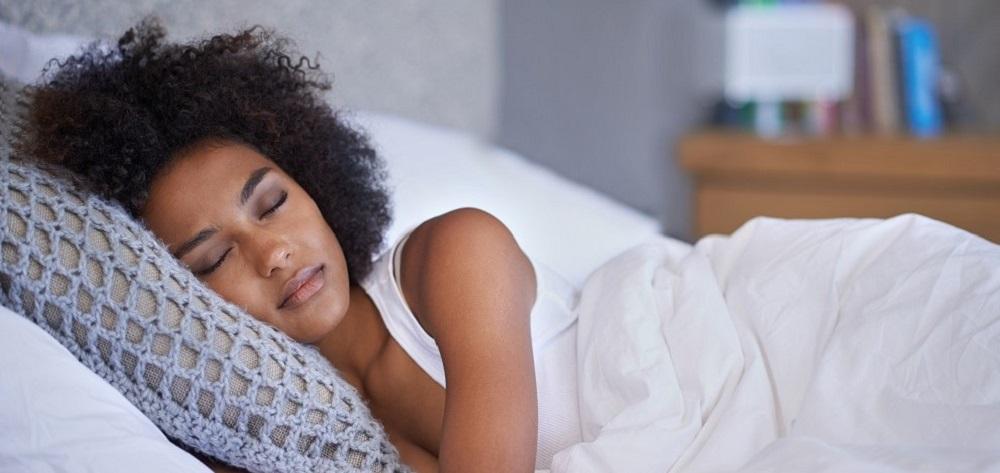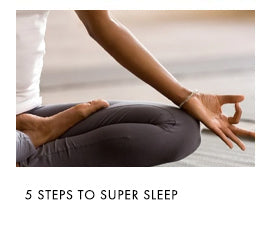Sleep disturbances are a problem for up to 16 million of the UK*. For many, you may feel as though you have tried every trick under the sun but, have you ever considered how your diet and lifestyle could affect your sleep? Is it really.. Eat well, sleep well?
We asked Nutritional Therapist Grace Carey-Caton our burning questions on how nutrition can impact our sleep. And here’s her inside information and tips on how to get back to having a deep and restorative sleep that you deserve. Let’s get started!
DOES WHAT WE EAT AFFECT OUR SLEEP?
In short, yes. What we eat can have a big effect on how we sleep in terms of the duration, the amount we wake up and the quality. There are certain dietary patterns which can affect us positively or negatively. Not only with our energy throughout the day, but also the quality of our night-time sleep.
Take those who have a high calorie, low nutrient dense and particularly high fatty foods diet for example. Studies show that these people experience much shorter sleeps than a group of people in the study who consumed a variety of food groups and nutrients including fiber, protein, carbohydrates and fat (1).
TOP 5 FOODS/DRINKS TO ADD/AVOID TO EFFECT OUR SLEEP?
1. Tryptophan Rich Foods
Let’s start with Tryptophan. Tryptophan is an amino acid which is found in foods such as turkey, tuna, bananas, nuts, dates, figs, milk, yoghurt and whole grains. Now tryptophan has a very important role in sleep as it induces the hormone Melatonin which regulates sleep. Your body should produce the most melatonin in the evening, which tells you its bedtime and makes you feel sleepy (2).
2. Ashwagandha
Ashwagandha is an adaptogen which means it adapts to the body’s stressors. It is a wonderful herb for calming effects and has been shown to regulate the circadian rhythm, reduce anxiety and aid a deeper sleep. 1 hour before bed try this recipe: 1 tsp Ashwagandha, powder, 1 cup milk, 1/2 tsp cinnamon, 1 tsp coconut oil – simmer on the hob for 5 minutes (3).
3. Tart Cherry Juice
Cherries are extremely high in (you guessed it!) melatonin. Many studies have examined the effect of cherries and specifically, tart cherries on sleep regulation. Studies show that the consumption of 8 ounces of tart cherry juice for just 2 weeks is associated with a significant reduction in insomnia (4).
4. Herbal Tea
There are specific herbal teas which work to calm down the nervous system and promote a restorative sleep. These include chamomile which can be used as a mild sedative to calm nerves (5) Valerian which is shown to improve sleep quality (6), and Passionflower to reduce sleep disturbances (7).
5. Removing Stimulants
You may think that a bedtime night cap will send you off to sleep but alcohol as well as tobacco and caffeine are actually stimulants so will keep your brain active throughout the night. This can then result in frequent night-time awakenings. For a good night’s sleep, avoiding these in the evening is a must (8) (9).

IS THERE A LINK BETWEEN GUT HEALTH & SLEEP?
The gut is often referred to as our “second brain”. This is because the gut microbiome is home to the over 100 million neurons of the nervous system which is in continuous communication with the brain (10). These neurotransmitters include serotonin, dopamine and melatonin which regulate sleep. A happy and healthy gut is essential to keep these neurotransmitters working well (11).
WHAT CAN WE DO TODAY TO MAKE A DIFFERENCE TO OUR GUT HEALTH?
A small step to make to improve gut health is FIBRE. It’s simple but super effective. Eating a diet with a significant amount of fiber will enable the good bacteria in our guts to be fed and in turn keep the microbiome a healthy environment. Aim for at least 30g of fiber per day. High fiber food sources include brown rice, sweet potato, beans, chickpeas, chia seeds, oats, broccoli , apples, pears and berries (12).
WHICH VITAMINS & MINERALS CAN AFFECT OUR SLEEP?
MAGNESIUM
Magnesium is able to help you wind down at night as it regulates the neurotransmitters involved in the sleep process. Studies show that using magnesium supplements improve the efficiency of sleep by increasing the amount of time asleep, enabling you to fall asleep quicker and reducing early morning awakening (13).
VITAMIN B6
Studies show a strong link between B6 and improved sleep (14) and that a deficiency of B6 promotes psychological distress and sleep disturbances (15). B6 is involved in the production of the important melatonin so it is essential to induce sleep.
CALCIUM
The intake of calcium is associated with an improved ability to fall asleep and increased restorative sleep. Studies found that in some cases of sleep disturbances calcium deficiency was related (16).
**Speak to your health professional before taking new supplements**

WHAT IS THE ULTIMATE BEDTIME ROUTINE?
So here we have it, the ultimate sleep routine. Now remember, this is the ULTIMATE sleep routine which is of course not achievable for everyone every night with the busy lifestyles and schedules that we live.
However, I urge you to try this routine a couple of times per week or at least try a few of the points and see how much of an effect it will have on your sleep!
1. Start with a tryptophan rich dinner. Think a protein source of turkey or tuna along with whole grains and veggies.
2. Turn off all computers, TV’s and phones at least an hour before bed. The LED from screens (blue light) can disrupt the circadian rhythm and cause sleep dysfunctions.
3. Set the mood for your bedtime sleep routine by lighting a candle or using a diffuser with essential oils. Studies have proved the benefits of using aromatherapy to improve sleep (17). I love NEOM’s essential oil and candle ‘Scents to Make You Sleep’ range as they have been designed specifically for sleep and are blended with essential oils such as lavender and jasmine.
4. Make yourself a warm cup of herbal tea such as chamomile, valerian, passionflower or whip up an ashwagandha latte to calm the nervous system and prepare you for bed.
5. Run a warm bath with 2 cups of salts and and soak for at least 20 minutes. Salts are a form of magnesium so will relax the muscles. Double up on the magnesium by massaging NEOM’s Magnesium Body Butter on to your body to further promote relaxation.
6. Try some deep breathing. Breathing exercises before bedtime have been shown to promote better sleep as it acts as a natural tranquilizer for the nervous system.
7. Ensure the room is completely dark and quiet. Opt for an eye mask or black out blind if you have light in your room. The magical Melatonin is stimulated by darkness, so this is essential!
Sleep well!
Grace x
Swot Up. Read and Learn More Good Stuff on our Blog
**If you are having problems sleeping which has been ongoing for a long period of time, please speak to a health professional in order to investigate further**
Grace is a Nutritional Therapist who specialises in Gut Health and Women’s Health. Her approach to nutrition is to work with her clients to educate them on how to treat their bodies so that they can live life at their optimum health! Consultations are available to book at www.gracecareynutrition.co.uk







